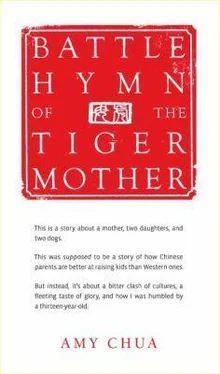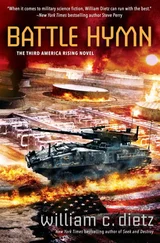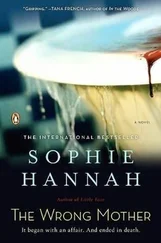But Lulu had underestimated me too. I was just rearming. The battle lines were drawn, and she didn’t even know it.

My last name is Chua — Cài in Mandarin — and I love it. My family comes from southern China’s Fujian Province, which is famous for producing scholars and scientists. One of my direct ancestors on my father’s side, Chua Wu Neng, was the royal astronomer to Emperor Shen Zong of the Ming Dynasty, as well as a philosopher and poet. Obviously wide-ranging in his skills, Wu Neng was appointed by the emperor to be the chief of military staff in 1644, when China faced a Manchu invasion. My family’s most prized heirloom — in fact, our only heirloom — is a 2000-page treatise, handwritten by Wu Neng, interpreting the I Ching, or Book of Changes, one of the oldest of the classic Chinese texts. A leather-bound copy of Wu Neng’s treatise — with the character for “Chua” on the cover — now sits prominently on my living room coffee table.
All of my grandparents were born in Fujian, but at different points in the 1920s and 1930s they boarded boats for the Philippines, where there was said to be more opportunity. My mother’s father was a kind, mild-mannered schoolteacher who became a rice merchant to support his family. He was not religious and not particularly good at business. His wife, my grandmother, was a great beauty and devout Buddhist. Despite the antimaterialistic teachings of the Bodhisattva Guanyin, she always wished her husband were more successful.
My father’s father, a good-natured fish-paste merchant, was also not religious and not particularly good at business. His wife, my Dragon Lady grandmother, made a fortune after World War II by going into plastics, then investing her profits in gold bars and diamonds. After she became wealthy — securing an account to produce containers for Johnson & Johnson was key — she moved into a grand hacienda in one of Manila’s most prestigious neighborhoods. She and my uncles started buying upTiffany glass, Mary Cassatts, Braques, and condos in Honolulu. They also converted to Protestantism and began using forks and spoons instead of chopsticks, to be more like Americans.
Born in China in 1936, my mother arrived in the Philippines with her family when she was two. During the Japanese occupation of the Philippines, she lost her infant brother, and I’ll never forget her description of Japanese soldiers holding her uncle’s jaws open, forcing water down his throat, and laughing about how he was going to burst like an overfilled balloon. When General Douglas MacArthur liberated the Philippines in 1945, my mother remembers running after American jeeps, cheering wildly, as U.S. troops tossed out free cans of Spam. After the war, my mother attended a Dominican high school, where she was converted to Catholicism. She eventually graduated from the University of Santo Tomas first in her class, summa cum laude, with a degree in chemical engineering.
My father was the one who wanted to immigrate to America. Brilliant at math, in love with astronomy and philosophy, he hated the grubbing, backstabbing world of his family’s plastics business and defied every plan they had for him. Even as a boy, he was desperate to get to America, so it was a dream come true when the Massachusetts Institute of Technology accepted his application. He proposed to my mother in 1960, and later the same year my parents arrived in Boston, knowing not a soul in the country. With only their student scholarships to live on, they couldn’t afford heat their first two winters, and wore blankets around to keep warm. My father got his Ph.D. in less than two years and became an assistant professor at Purdue University in West Lafayette, Indiana.
Growing up in the Midwest, my three younger sisters and I always knew that we were different from everyone else. Mortifyingly, we brought Chinese food in thermoses to school; how I wished I could have a bologna sandwich like everyone else! We were required to speak Chinese at home — the punishment was one whack of the chopsticks for every English word accidentally uttered. We drilled math and piano every afternoon and were never allowed to sleep over at our friends’ houses. Every evening when my father came home from work, I took off his shoes and socks and brought him his slippers. Our report cards had to be perfect; while our friends were rewarded for Bs, for us getting an A-minus was unthinkable. In eighth grade, I won second place in a history contest and brought my family to the awards ceremony. Somebody else had won the Kiwanis prize for best all-around student. Afterward, my father said to me: “Never, never disgrace me like that again.”
When my friends hear these stories, they often imagine that I had a horrible childhood. But that’s not true at all; I found strength and confidence in my peculiar family. We started off as outsiders together, and we discovered America together, becoming Americans in the process. I remember my father working until three in the morning every night, so driven he wouldn’t even notice us entering the room. But I also remember how excited he was introducing us to tacos, sloppy joes, Dairy Queen, and all-you-can-eat buffets, not to mention sledding, skiing, crabbing, and camping. I remember a boy in grade school making slanty-eyed gestures at me, guffawing as he mimicked the way I pronounced restaurant (rest-OW-rant) — I vowed at that moment to rid myself of my Chinese accent. But I also remember Girl Scouts and hula hoops; roller skating and public libraries; winning a Daughters of the American Revolution essay contest; and the proud, momentous day my parents were naturalized.
In 1971, my father accepted an offer from the University of California at Berkeley, and we packed up and moved west. My father grew his hair and wore jackets with peace signs on them. Then he got interested in wine collecting and built himself a one-thousand-bottle cellar. As he became internationally known for his work on chaos theory, we began traveling around the world. I spent my junior year in high school studying in London, Munich, and Lausanne, and my father took us to the Arctic Circle.
But my father was also a Chinese patriarch. When it came time to apply to colleges, he declared that I was going to live at home and attend Berkeley (where I had already been accepted), and that was that — no visiting campuses and agonizing choices for me. Disobeying him, as he had disobeyed his family, I forged his signature and secretly applied to a school on the East Coast that I’d heard people talking about. When I told him what I had done — and that Harvard had accepted me — my father’s reaction surprised me. He went from anger to pride literally overnight. He was equally proud when I later graduated from Harvard Law School and when Michelle, his next daughter, graduated from Yale College and Yale Law School. He was proudest of all (but perhaps also a little heartbroken) when Katrin, his third daughter, left home for Harvard, eventually to get her M.D./Ph.D. there.
America changes people. When I was four, my father said to me, “You will marry a non-Chinese over my dead body.” But I ended up marrying Jed, and today my husband and my father are the best of friends. When I was little, my parents had no sympathy for disabled people. In much of Asia, disabilities are seen as shameful, so when my youngest sister Cynthia was born with Down syndrome, my mother initially cried all the time, and some of my relatives encouraged us to send Cindy away to an institution in the Philippines. But my mother was put in touch with special education teachers and other parents of children with disabilities, and soon she was spending hours patiently doing puzzles with Cindy and teaching her to draw. When Cindy started grade school, my mother taught her to read and drilled multiplication tables with her. Today, Cindy holds two International Special Olympics gold medals in swimming.
Читать дальше













